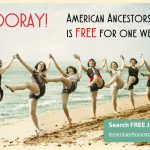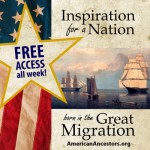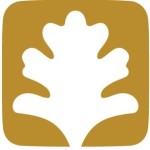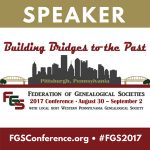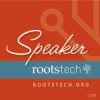Note: This is Part 3 of a three-part review “Family Curator Visits NEHGS Spring Research Getaway 2009” focusing on the three-day program and the one-on-one consultation sessions.
Part 1: Preparing to Research
Part 2:Consulting with the Experts
Three full days of research at the New England Historical Genealogical Society Library may sound like quite a bit of research time, but it is not surprising that it is still not quite enough. Day One I spent mostly in consultations with the NEHGS experts. The Library was open in the evening, but I left about 5pm to join my husband for dinner, and did not take advantage of the extra research time.
I vowed to be Focused on Day Two, and went to work immediately after Josh Taylor’s excellent presentation on source citation. I have always been a “browser” and took full advantage of the library’s open stack policy to examine the volumes on hand for my localities of interest. A handy photocopy machine made quick work of copies for my records, and then I was off to the microtext room where I was pleased to discover the full-text films of the Vermont probate records. Julie Otto helped me conquer my fear of film machines and before long I was making digital copies of the films to examine more closely when I returned home.
Day Three promised considerable progress, but I had to leave the program at noon and could only attend the morning lecture by Judy Lacey on manuscripts in the HisGen archive collection. Her excellent presentation gave me so many ideas for further research: I would like to return and examine some of the letters, diaries, and journals in the collection with an eye toward finding friends or relatives of my ancestors. I was awed by the extent of the Society’s collection; there will be wonderful discoveries in the years to come from this archive.
So, what will I research on my NEXT visit?
Local Histories
Maps and Gazetteers
Manuscript Collection
more Family Histories
Probate Records
Military Records
I was determined to use NEHGS resources that are unique to the Library, yet I found myself reading microfilms (can’t I get these elsewhere?) and examining various printed volumes. When I returned home and did an internet search at World Cat for the same volumes I found that I would have to request the films from the local LDS Family History Center or visit NEHGS! This reaffirmed my appreciation for the HisGen collection, and made me more than a bit jealous for those researchers who live within easy driving distance of the library. I was also pleased that I had been able to use the digital copy machine to make copies of the microfilms I examined; this will give me many more hours of research time from home as I transcribe documents with the aid to computer enhanced images.
Of course, the online databases also provide unique access to the NEHGS collections. I have found my ancestors in the Rhode Island Vital Records Index, in the Newspaper Archive collection, and in various other digitized resources. The recent addition the indexed TAG articles with The NEHGS Register make this resource indispensable for any researcher working with New England records.
My experience at HisGen not only extended my pedigree, it also helped me feel confident to tackle research elsewhere. I think this was one of the greatest benefits of the program, I practiced “learning to learn.” Thank you NEHGS.
